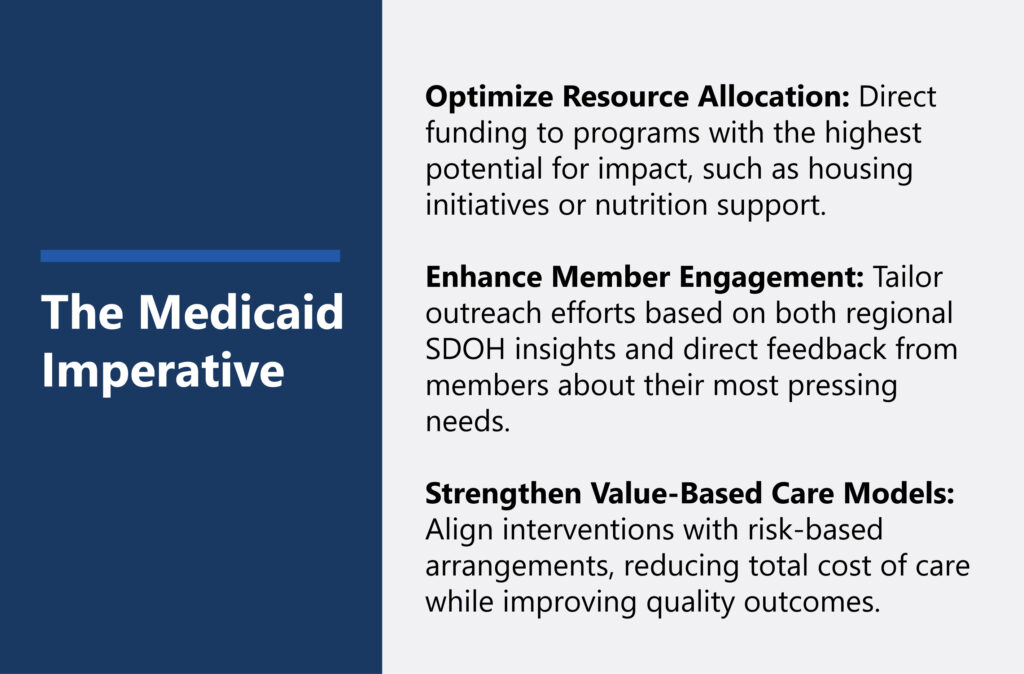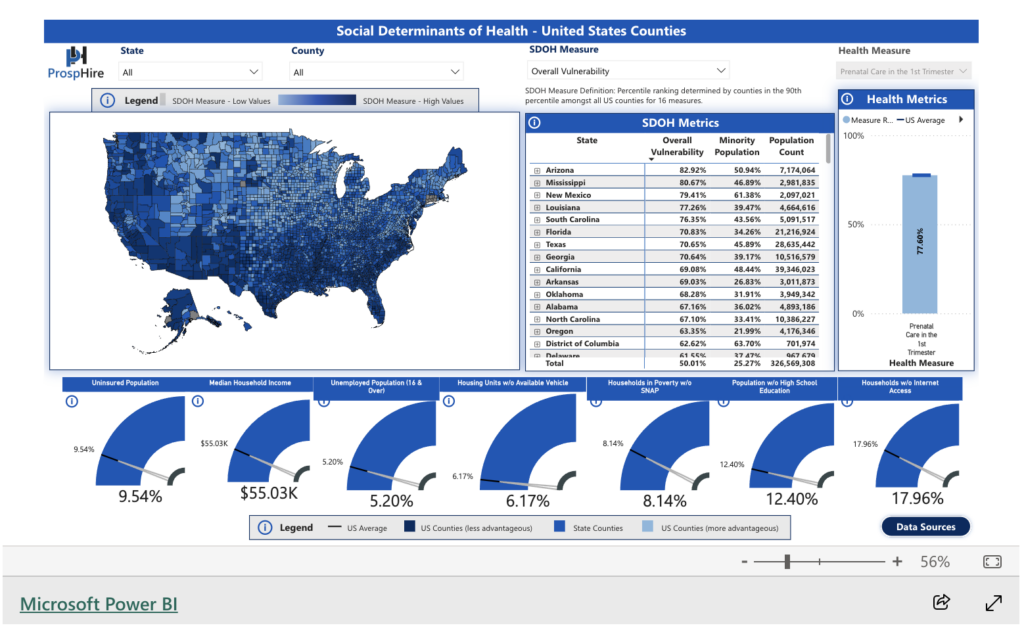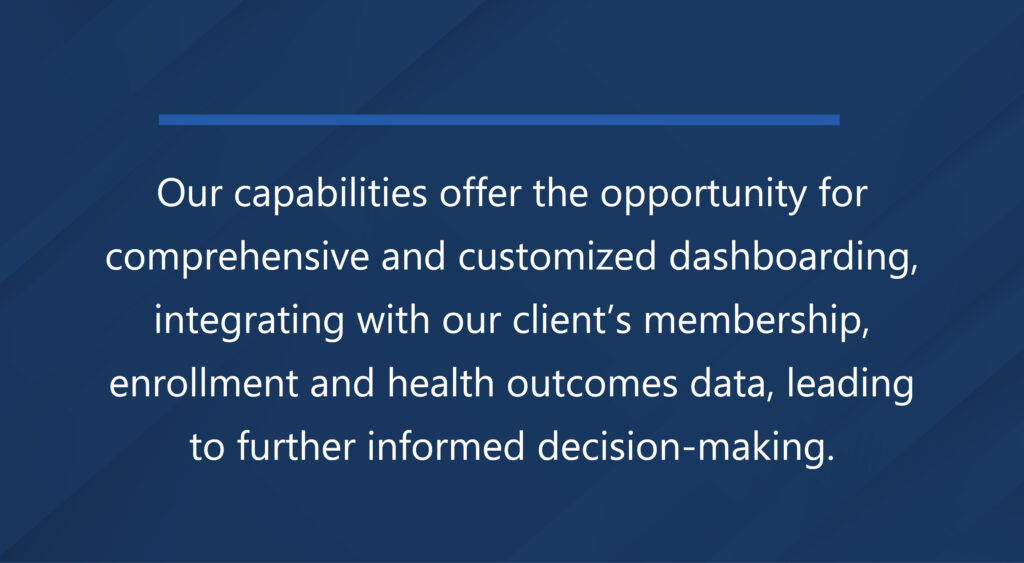Unlocking the Power of Data to Drive Meaningful SDOH Interventions
Let’s have a conversation
Social Determinants of Health (SDOH) shape health outcomes more profoundly than clinical care alone, influencing everything from chronic disease prevalence to healthcare utilization. As health plans, providers, and policymakers seek to address health disparities and improve outcomes, the key to success lies in leveraging data to inform targeted, high-impact interventions.
The Data-Driven Imperative
Without reliable data, SDOH interventions risk being broad and inefficient—potentially missing the communities and populations that need support the most. By harnessing robust, localized SDOH data, healthcare stakeholders can design interventions that address specific community needs, ensuring resources are allocated effectively for maximum return on investment (ROI).

The Medicaid Imperative
Medicaid enrollees are disproportionately affected by adverse SDOH, making a data-informed, community-driven strategy particularly critical. With Medicaid managed care organizations (MCOs) increasingly accountable for addressing SDOH, access to granular, zip code-level data—when paired with community input—empowers plans to:
- Optimize Resource Allocation: Direct funding to programs with the highest potential for impact, such as housing initiatives or nutrition support.
- Enhance Member Engagement: Tailor outreach efforts based on both regional SDOH insights and direct feedback from members about their most pressing needs.
- Strengthen Value-Based Care Models: Align interventions with risk-based arrangements, reducing total cost of care while improving quality outcomes.
Pairing Data with Community Engagement
Data alone cannot capture the full context of challenges individuals and communities face. While it provides valuable insights into where disparities exist, it must be combined with community engagement and lived experiences to drive meaningful action. It must be complemented by:
- Local Partnerships: Collaborating with community-based organizations (CBOs), faith-based groups and local leaders enables interventions are culturally appropriate and aligned with real needs.
- The Voice of the Customer: Engaging directly with Medicaid members and other impacted populations through focus groups, surveys and advisory councils provides firsthand insight into barriers to care and potential solutions.
- Flexible, Community-Driven Solutions: A data-informed intervention might indicate a need for increased access to transportation, but without community input, the solution may not be effective—whether due to affordability, scheduling issues or cultural considerations.

Turning Insights into Action
Our newest data insight tool, snapshot shown above, provides health plans, providers and policymakers with the first layer of data and information needed to make strategic, high-impact decisions. By visualizing SDOH indicators at the county level, users can identify gaps and drive toward evidence-based interventions. Success, however, depends on further investigation and the complementing of data insights with strong community partnerships and the voices of those most affected.
At ProspHire we believe we can achieve more equitable health outcomes and drive meaningful change, particularly for those who need it most with our partners.

Click here to see our online tool to support your early-stage discussions. Connect with us for a demo and to learn more about a data-driven approach to improving health outcomes through SDOH.
ProspHire
216 Blvd of the Allies, Sixth Floor
Pittsburgh, PA 15222
prosper@prosphire.com


© 2025 ProspHire, LLC. All Rights Reserved / Terms of Use / Privacy Policy







